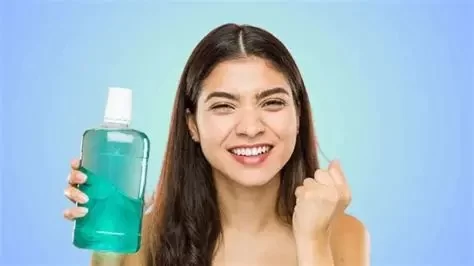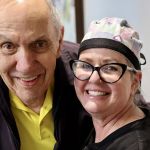
1. The Big Question: Is Mouthwash Really Essential?
Across the United States, people are filling their bathroom cabinets with a rainbow of mouthwash bottles—minty, herbal, alcohol-free, fluoride-rich. But the real question remains: is mouthwash truly necessary for maintaining proper oral hygiene?
For many, mouthwash is marketed as a must-have. Ads often feature someone swishing for 30 seconds and emerging with perfect breath and a sparkling smile. But let’s explore the science, expert opinions, and real-life experiences behind this trend to determine whether it’s more hype or health.
2. Understanding the Role of Mouthwash in Oral Hygiene
2.1 Mouthwash Is Not a Substitute for Brushing and Flossing
According to the American Dental Association (ADA), mouthwash is considered an "adjunct"—a supportive part of your oral care routine. It cannot and should not replace brushing or flossing. Mechanical cleaning with a toothbrush and interdental floss removes plaque and food particles; mouthwash alone cannot achieve this.
2.2 What Does Mouthwash Actually Do?
Different types of mouthwash serve different purposes. Here are a few examples:
- Antiseptic mouthwashes (usually with alcohol or chlorhexidine) kill bacteria and reduce plaque buildup.
- Fluoride-based mouthwashes help in strengthening enamel and preventing cavities.
- Cosmetic mouthwashes only freshen breath temporarily without real therapeutic effects.
Understanding what your mouthwash contains and what it targets is essential for making it a meaningful part of your hygiene routine.
3. Real Stories: When Mouthwash Made a Difference
3.1 Jenny’s Journey from Gingivitis to Confidence
Jenny, a 34-year-old nurse from Boston, struggled with bleeding gums for years. Her dentist advised her to add a chlorhexidine-based mouthwash for two weeks following professional cleaning. "Within ten days, I noticed less bleeding and my mouth felt fresher even at the end of my shifts," she recalls.
While the treatment wasn’t permanent, it helped her regain motivation to stick with a stronger brushing and flossing routine. For her, mouthwash became a temporary but powerful aid.
3.2 David’s Experience with Overuse and Sensitivity
On the flip side, David, a tech professional from Austin, used alcohol-based mouthwash twice daily for a year. “My breath stayed fresh, but I started noticing sensitivity and dry mouth,” he said. His dentist explained that the high alcohol content was stripping away protective mucous layers and advised switching to a gentler, alcohol-free version.
This example shows that not all mouthwashes are safe for long-term or frequent use—especially for those with sensitivity or dry mouth issues.
4. Scientific Perspective: What Do Dentists Say?
4.1 Expert Consensus
Most U.S. dentists agree: mouthwash can be helpful, but it depends on the individual’s needs. Dr. Laura Jensen, a practicing dentist in Chicago, advises, “If a patient has active gum disease, we often recommend a therapeutic mouthwash as a short-term treatment—not a permanent solution.”
4.2 Conditions Where Mouthwash Is Recommended
Mouthwash is often suggested for:
- Patients undergoing orthodontic treatment (braces or aligners)
- People recovering from oral surgery
- Individuals with chronic bad breath (halitosis)
- Patients with higher cavity risk due to dry mouth or sugar-heavy diets
Still, most dental professionals stress that mouthwash should be chosen and used under guidance—not as a random addition to the routine.
5. Common Myths About Mouthwash
5.1 Myth: Mouthwash Can Cure Bad Breath Permanently
Bad breath, or halitosis, is often caused by bacteria on the tongue or even internal health issues. Mouthwash may mask the odor temporarily, but unless the root cause is addressed—usually with tongue cleaning and regular brushing—the problem persists.
5.2 Myth: The Burning Sensation Means It's Working
This is one of the most common misconceptions. The burning sensation from alcohol-based mouthwashes is not an indicator of effectiveness. In fact, that stinging may signal irritation, not action.
5.3 Myth: Everyone Needs to Use Mouthwash Daily
Just as not everyone needs fluoride supplements or whitening strips, not everyone needs mouthwash. Your dental care should be customized to your needs—not based on commercials or peer pressure.
6. How to Choose the Right Mouthwash for You
6.1 Read the Labels Carefully
Look for ADA-approved products, and understand the ingredients. For example, if you’re prone to cavities, choose fluoride-based solutions. For gum issues, chlorhexidine or cetylpyridinium chloride may be better.
6.2 Avoid Alcohol if You Have Sensitivity
Many alcohol-free options now offer similar antibacterial benefits without the drying effect. Children, elderly adults, and those with sensitive mouths should especially avoid high-alcohol content products.
6.3 Ask Your Dentist
The best person to guide you is your dentist. They can identify whether you truly need mouthwash and, if so, which type suits your condition.
7. American Oral Care Trends and Consumer Habits
7.1 Rise of Natural and Herbal Mouthwashes
In 2025, many Americans are turning to natural mouthwashes with ingredients like tea tree oil, aloe vera, and xylitol. These products appeal to consumers seeking fluoride- or alcohol-free solutions that still offer antibacterial protection.
7.2 The Influence of TikTok and Social Media
From influencers swearing by saltwater rinses to viral videos reviewing obscure brands, social media plays a big role in shaping habits. While some advice is useful, not all trends are scientifically sound. Always verify with dental professionals before jumping on the bandwagon.
8. Final Thoughts: Use Mouthwash Wisely, Not Blindly
In the U.S., where dental care is a blend of prevention and aesthetics, mouthwash can play a meaningful role—but only when used with understanding and purpose. If you're unsure about what fits your routine best, visit Dentistry Toothtruth where you’ll find trusted service recommendations, dentist-approved products, and oral health guides tailored for American families.
Remember: a healthy mouth starts with brushing and flossing. Mouthwash is the bonus—not the base—of your dental routine.







 Acworth Smiles Dentistry4.0 (145 review)
Acworth Smiles Dentistry4.0 (145 review) Ryan J Donovan DMD, MS, PA Periodontics And Dental Implants4.0 (113 review)
Ryan J Donovan DMD, MS, PA Periodontics And Dental Implants4.0 (113 review) New Lenox Dental Group4.0 (46 review)
New Lenox Dental Group4.0 (46 review) Clubhouse Pediatric Dentistry5.0 (208 review)
Clubhouse Pediatric Dentistry5.0 (208 review) NuSet Dental Implants and Oral Surgery of Scottsdale4.0 (20 review)
NuSet Dental Implants and Oral Surgery of Scottsdale4.0 (20 review) Simply Beautiful Smiles of Abington, PA4.0 (142 review)
Simply Beautiful Smiles of Abington, PA4.0 (142 review) The Importance of Oral Health Education During Pregnancy for a Healthy Pregnancy
The Importance of Oral Health Education During Pregnancy for a Healthy Pregnancy Best Tips for Brushing Your Teeth Properly for Healthy Gums: Essential Techniques for Oral Health
Best Tips for Brushing Your Teeth Properly for Healthy Gums: Essential Techniques for Oral Health Why Skipping Dental Checkups Can Lead to Bigger Oral Health Problems
Why Skipping Dental Checkups Can Lead to Bigger Oral Health Problems Advantages of Porcelain Dental Restorations
Advantages of Porcelain Dental Restorations How Can Diabetes Cause Tooth and Gum Problems? Preventing and Managing Oral Health Issues
How Can Diabetes Cause Tooth and Gum Problems? Preventing and Managing Oral Health Issues Healthy Habits for Promoting Good Oral Health and Hygiene: Tips for a Healthy Smile
Healthy Habits for Promoting Good Oral Health and Hygiene: Tips for a Healthy Smile